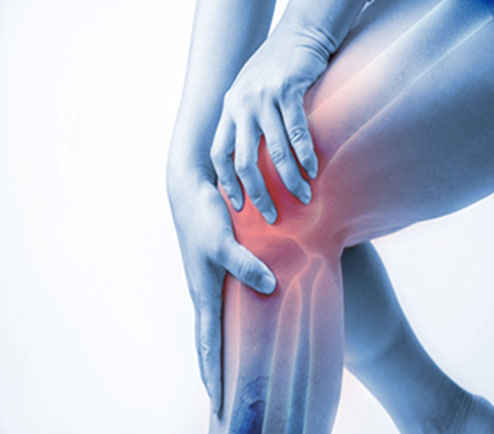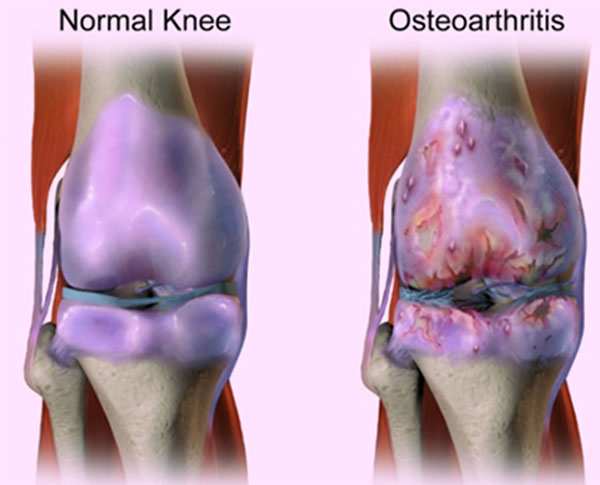Make an Appointment
Osteoarthritis is the most common form of arthritis in the knee. It is a degenerative “wear-and-tear” type of arthritis that occurs most often in people 50 years of age and older but may occur in younger people too.
In osteoarthritis, the cartilage in the knee joint gradually wears away. As the cartilage wears away, it becomes frayed and rough, and the protective space between the bones decreases. This can result in bone rubbing on bone and produce painful bone spurs. Osteoarthritis develops slowly and the pain it causes worsens over time.

What Causes Knee Osteoarthritis?
- Age: ability of cartilage to heal decreases as a person gets older
- Weight: increase pressure on the joints, in particular the knees
- Heredity: genetics’
- Gender: women ages 55+ are more likely than men
- Repetitive stress injuries: pending occupation
- Athletics: serious knee injuries in sports
- Other illnesses: metabolic disorders

What are the Symptoms of Knee Osteoarthritis?
- Joint becomes stiff and swollen, making it difficult to bend and straighten the knee
- Pain and swelling may be worse in the morning, or after sitting or resting
- Vigorous activity may cause pain to flare up
- The knee may “lock” or “catch” during movement.
- It may creak, click, snap, or make grinding noise (crepitus)
Diagnosis
Based on the history and symptoms of the injury presented, our physiotherapists will perform several tests to confirm the diagnosis. Sometime other imaging such as X-ray, MRI and bone scan can help detect signs of OA.
How can Knee Osteoarthritis be Treated?
- Pain relief & control inflammation
- Anti-inflammatory medications
- Hot and cold treatments
- Injections of corticosteroids
Watch this three-part video series on how to treat Knee Osteoarthritis
Exercises to strengthen the hips, knees, and ankles
Exercises to strengthen the lumber-pelvic region
How to Modify sporting and daily activities
Lifestyle and home remedies:
- Maintaining a healthy weight
- Keeping active
- Healthy supplement
- Surgery (when other treatments don’t work!)
If you want more guidance on how to improve your knee strength or how physiotherapy can help you move better after a Knee Osteoarthritis diagnosis, book an appointment with me or with one of our physiotherapists or alternatively you can find out more about our physiotherapy services.
Date Published: Wednesday, February 9, 2022
Need to get into direct contact with ur Client Services team? We're all ears. Call our team directly on 1300 731 733
